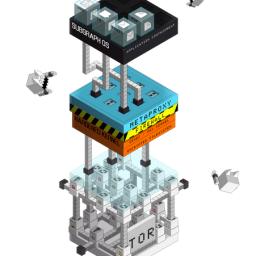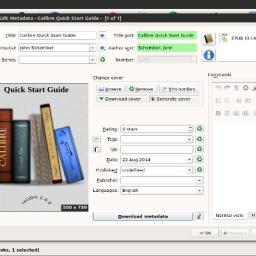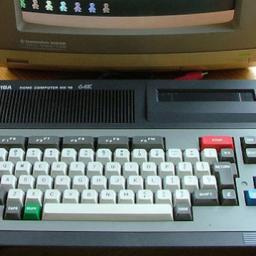
Tails was compromised, and everyone is wondering what is going to happen next. But a team of researchers in Canada hopes they have the answer:
Subgraph, an operating system resistant to zero-day exploits.
In Subgraph OS, any application a computer interacts with running the operating system is isolated in containers to prevent exploits from having a meaningful impact at the OS level. It uses the Grsecurity kernel, a patch applied to the Linux kernel that enhances security by limiting what processes can do. For example, with most operating systems, receiving an infected PDF making use of a zero-day vulnerability means before you realize it, there's malicious code running on your computer. ... he new OS is also, obviously, designed for complete anonymity. All the connections in the OS are intercepted by a metaproxy that then routes them through Tor. The metaproxy has some nifty tricks, too: it opens different Tor circuits for different apps, to avoid an attacker correlating traffic to the same origin.
Subgraph is based on Debian, PGP, and other open source technologies and products.

If you're tired of iOS, bored with Android, disgusted with Blackberry, and put off by Winphones, the folks over at Jolla would like to have a word with you.
Their Jolla phone, running a cutting-edge version of their Sailfish OS has just launched.If you hadn't heard, Jolla was founded by a bunch of ex-Nokia employees who decided to go solo with a Linux-based phone operating system when Nokia chose Elop and a Microsoft strategy. Will it work?
Having gone on retail sale at the end of 2013, it's been a busy and productive year for a company with an employee count that is in the low hundreds. Compare that to Microsoft, Apple, or Samsung, and you can put the success of the Jolla hardware and software into perspective. ...
The Jolla handset does not follow the normal paradigms for a smartphone user interface. As the smartphone moves away from the hackers and early supporters, improving the consumer experience has been one goal. The Sailfish UI is fast and flexible, and well-suited to one-handed usage. But it does take some getting used to. Jolla has improved the UI tutorial, and also added in dynamic hints and tips if the OS feels the user is 'stuck' looking for something in the UI.
The thing looks nice enough, but it's going to have to be slicker and sleeker than the existing alternatives to take traction. That said, there's no reason the market can be disrupted. Every time some pundit declares a winner, history proves them wrong.
Twenty years ago a guy by the name of
Jordan Hubbard began the first FreeBSD ports tree. Two decades later it's an essential part of any FreeBSD install, allowing source code-level access to a huge ecosystem of software, all installable in either binary package or make-config-install format. That's not Jordan's only contribution either: FreeBSD owes sysinstall and the original package management system to him as well (retired in FreeBSD 10.0-RELEASE for a next generation system).
In commemoration of the big 2-0,
BSDFrance commissioned this video. It's quite well done.
BSD/Linux users, what are your opinions of the ports tree vs. repositories vs. app stores? Happy 20th, FreeBSD Ports Tree.
[Ed. note: 2014-08-27 21:18 thrilled to see we now have our very own BSD topic. About time; there have been several BSD articles here!]
Well, unless you were holed up with Dick Cheney in the underground security bunker, you probably noticed Pipedot flipped the switch on a new feature that feeds articles from other sites. The idea is, as I understand it, anyone running Pipecode can eventually have a whole series of these feeds, and automatically populate their site with articles.
That led to a rash of new articles here, all of the Soylent comments, and a bit of anger over at Soylent despite NCommander having generously and magnanimously offered the feed of articles to Pipedot.
Nonetheless, this mirthful article suggestion poked up in the Pipe today:
Pipedot caught willfully plagiarizing Soylent News! As noted on https://soylentnews.org/comments.pl?sid=3587&cid=85807 and https://pipedot.org/story/2014-08-26/database-to-track-suspicious-memes-on-twitter and in particular, https://pipedot.org/comment/1409062920_n1_soylent_news_org , the majority of content being posted on pipedot.org is taken without permission from soylentnews.org
Given that the copyright of comments on soylentnews.org is not transferred from the people that posted them, this ongoing action constitutes wilful, mass copyright infringement.
You are hereby given notice on behalf of John Doe and Jane Doe * 4,000 under the US Digital Millennium Copyright Act 1998, as amended, Section 512(c)(3)(A) that:- ...
Glad nerds haven't lost their sense of humor. So, what did you think of the feature? Your comments here about the feed, the pipe, and the future direction of Pipedot.
There's an awful lot of sites out there offering you the latest in science, technology, gadgets, distros, and more. It's impossible to list them all here, but here's a representative sample of the big guns (plus Usenet!). Tick off any that you visit on a somewhat regular basis, and list others that you enjoy. This will help the editors and submitters better monitor those sites for interesting stories worth posting and discussing here.
The poll is here.

As a writer and avid reader, I find the Calibre ebook manager/editor invaluable. Not only does it allow you to produce, fix, or edit ebooks, but it's a good ebook reader app on its own if all you want to do is read an EPUB on your computer. When I wrote and published
The Dictator's Handbook, Calibre played
an important part of my workflow as I took LaTeX source code and turned it into an epub.And it's just gotten better. Version 2.0 is out, with huge improvements and additions in functionality.
According to the changelog, Calibre now has an e-book editor capable of editing books in the EPUB and AZW3 (Kindle) formats, with many powerful tools and features specially designed for making editing e-books easier, users now have the ability to compare books, which allows them to see all the differences between two books, highlighted, side-by-side, and it's now possible to connect to any Android phone or tablet on OS X and the application should automatically detect and connect to it.
It's worth noting that Calibre has also switched to Qt 5, which means that the interface should look a lot more modern and it should integrate much better with the operating system. Also, a number of improvements have been added to the way the library is now organized, which should make the entire experience much more streamlined.
Last I checked, it runs on just about every major desktop OS platform. I run it on FreeBSD and Linux.

You may not be a big fan of ChromeOS but there's no denying that Chromeboxes on low-spec hardware make it easy to easy to get on line and access web services. And
Acer's hoping that's a market with room to grow.Acer's Chromebox CXI, announced on Thursday (and pictured mounted on a separate Acer monitor above), puts the Chrome OS into a small enclosure measuring 0.6 liters in volume. It runs an Intel Celeron 2957U dual-core 1.4GHz processor, has a 16GB solid-state drive, and promises a boot-up time of just 8 seconds.
The device can include up to 4GB in RAM, has four USB 3.0 ports, an SD card reader, LAN port for wired network connection, and HDMI and DisplayPort outputs. It's priced from $179.99, including a keyboard and mouse.
Also covered by Engadget.
[Ed. note: I think I want one of these babies, but I'm hoping they'll allow newer versions of ChromeOS to access network shares first, since that's where I've put all my stuff.]
Thought we'd do another, short poll in mid-week, and I was curious which time zones we're all in. I am noticing a lot of comments come at about the same time in the 24 hour cycle, and I'm wondering if a lot of us are clustered in the same time zone.
This is in no way intended to infringe on your privacy. You anonymous cowards are welcome to remain anonymous and keep me guessing. And so is everyone else! But it does help give a sense of how early you have to get up around here in order to post an article 'first thing in the morning.'
Cast your vote here.
 Tails was compromised, and everyone is wondering what is going to happen next. But a team of researchers in Canada hopes they have the answer: Subgraph, an operating system resistant to zero-day exploits.
Tails was compromised, and everyone is wondering what is going to happen next. But a team of researchers in Canada hopes they have the answer: Subgraph, an operating system resistant to zero-day exploits.



